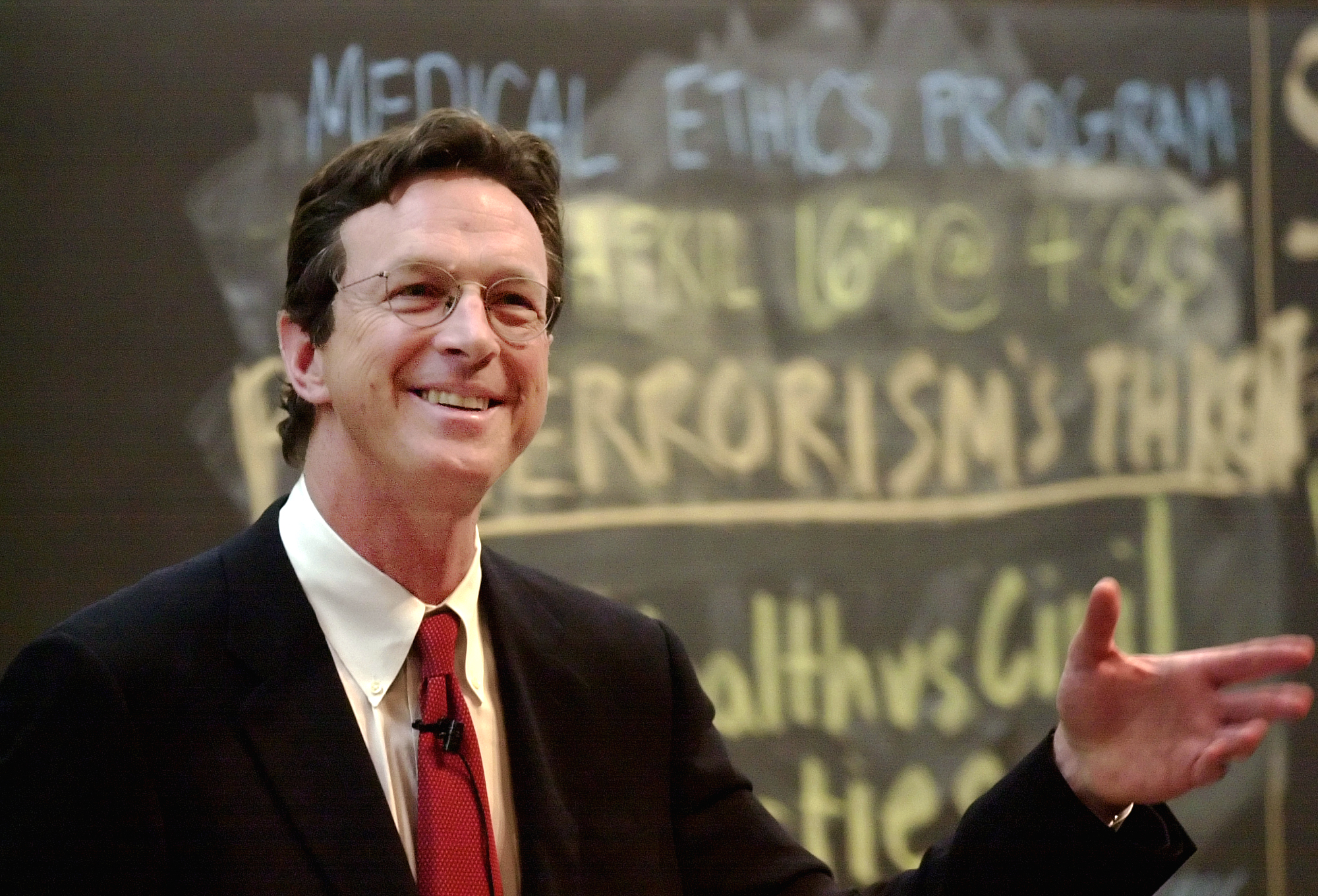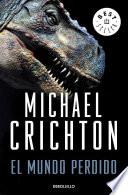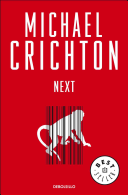Obras
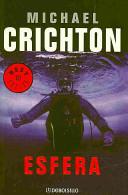
Esfera
Michael Crichton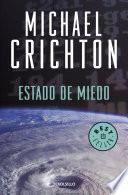
Estado de miedo
Michael CrichtonFrases célebres de Michael Crichton
The Terminal Man
Variante: Control de la mente. Vaya estupidez.
Lo cierto era que todo el mundo tenía la mente controlada, y todo el mundo se congratulaba por ello. Los controladores de mente más poderosos del mundo eran los padres, y eran ellos los que causaban más daños. Los teóricos solían olvidar que nadie nacía convencional, neurótico o con prejuicios; estas cualidades requerían ayuda ajena. Naturalmente, los padres no tenían intención de causar daño a sus hijos; se limitaban a inculcarles actitudes que consideraban importantes y útiles para ellos.
Los niños recién nacidos eran pequeños computadores en espera de ser programados. Podían aprender todo cuanto les fuera enseñado, desde mala ortografía a actitudes equivocadas. Como los computadores, no sabían discriminar; carecían de elementos para diferenciar las ideas buenas de las malas. La analogía era absolutamente exacta: mucha gente había comentado el infantilismo y la fidelidad literal de los computadores. Por ejemplo, si se ordenaba a un computador <>, el computadores respondería inmediatamente que no podía ponerse los calcetines por encima de los zapatos.
Toda la programación importante había terminado a la edad de siete años. Las actitudes raciales, sexuales, éticas, religiosas, nacionales. El giróscopo estaba en marcha, y los niños ya podían empezar su progreso por los cauces señalados de antemano.
Control de la mente.
¿Cómo llamar a algo tan sencillo como los convencionalismos sociales? ¿Estrecharse mutuamente las manos al saludarse? ¿No dar nunca la espalda en un ascensor? ¿Servir la comida por la izquierda? ¿Colocar la copa de vino a la derecha? Cientos de pequeños convencionalismos que la gente necesitaba para estereotipar las relaciones sociales; la supresión de una sola de ellas acarrearía una ansiedad insoportable.
Las personas necesitaban el control de la mente. Les gustaba sujetarse a él. Sin él se sentían irremediablemente perdidas.
Pero si un pequeño grupo de gente intentaba resolver el mayor problema del mundo en la actualidad –la violencia incontrolada-, de todas partes llegaban las exclamaciones: control de la mente, ¡control de la mente!
¿Qué era mejor, control o caos?
The Lost World
Frases de mundo de Michael Crichton
Michael Crichton Frases y Citas
State of Fear
Next
The Lost World
Variante: No te preocupes -dijo Sarah-. Ya pensaremos en algo. -Siempre contestas lo mismo -observó Kelly.
-Porque siempre es la verdad -repuso Sarah
Fuente: Conferencia de Michael Crichton en el Commonwealth Club sobre 'Environmentalism as Religion' (El ecologismo como religión), ocurrida en San Francisco, 15 de septiembre de 2005. Traducción de Mariano Bas Uribe. http://www.liberalismo.org/articulo/336/29/comentarios/commonwealth/club/
Michael Crichton: Frases en inglés
“Nobody is driven by abstractions like 'seeking truth.”
Fuente: Jurassic Park
“The planet has survived everything, in its time. It will certainly survive us.”
Fuente: Jurassic Park
“Discovery is always rape of the natural world. Always.”
Fuente: Jurassic Park
“All major changes are like death. You can't see to the other side until you are there.”
Fuente: Jurassic Park
“You know, at times like this one feels, well, perhaps extinct animals should be left extinct.”
Fuente: Jurassic Park
“He prays because he knows he doesn't control it. He's at the mercy of it.”
Fuente: Jurassic Park
“Increasingly, the mathematics will demand the courage to face its implications.”
Fuente: Jurassic Park
Variante: Professor Johnston often said that if you didn't know history, you didn't know anything. You were a leaf that didn't know it was part of a tree.
Fuente: Timeline
“I am certain there is too much certainty in the world.”
State of Fear (2004)
“Do you know what we call opinion in the absence of evidence? We call it prejudice.”
Fuente: State of Fear
Environmentalism as a Religion (2003)
Contexto: Environmentalism needs to be absolutely based in objective and verifiable science, it needs to be rational, and it needs to be flexible. And it needs to be apolitical. To mix environmental concerns with the frantic fantasies that people have about one political party or another is to miss the cold truth — that there is very little difference between the parties, except a difference in pandering rhetoric. The effort to promote effective legislation for the environment is not helped by thinking that the Democrats will save us and the Republicans won't. Political history is more complicated than that.
“I want to mention in passing that punditry has undergone a subtle change over the years.”
"Why Speculate?" https://web.archive.org/web/20050328084634/http://www.crichton-official.com/speeches/speeches_quote03.html - speech at the International Leadership Forum, La Jolla, California (26 April 2002)
Contexto: I want to mention in passing that punditry has undergone a subtle change over the years. In the old days, commentators such as Eric Sevareid spent most of their time putting events in a context, giving a point of view about what had already happened. Telling what they thought was important or irrelevant in the events that had already taken place. This is of course a legitimate function of expertise in every area of human knowledge.
But over the years the punditic thrust has shifted away from discussing what has happened, to discussing what may happen. And here the pundits have no benefit of expertise at all. Worse, they may, like the Sunday politicians, attempt to advance one or another agenda by predicting its imminent arrival or demise. This is politicking, not predicting.
Environmentalism as a Religion (2003)
Contexto: The notion that the natural world obeys its own rules and doesn't give a damn about your expectations comes as a massive shock... it will demand that you adapt to it — and if you don't, you die. It is a harsh, powerful, and unforgiving world, that most urban westerners have never experienced.
